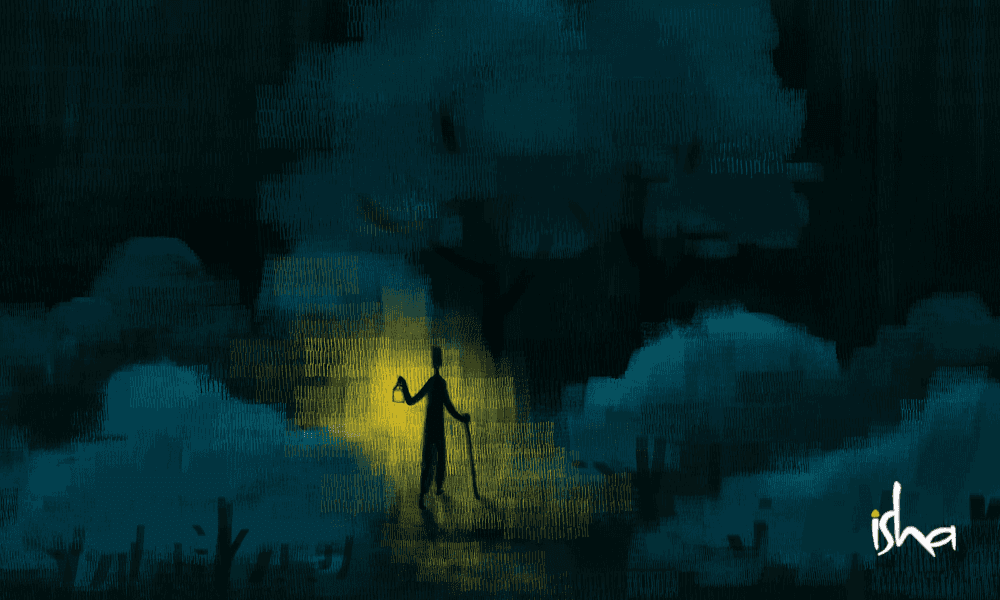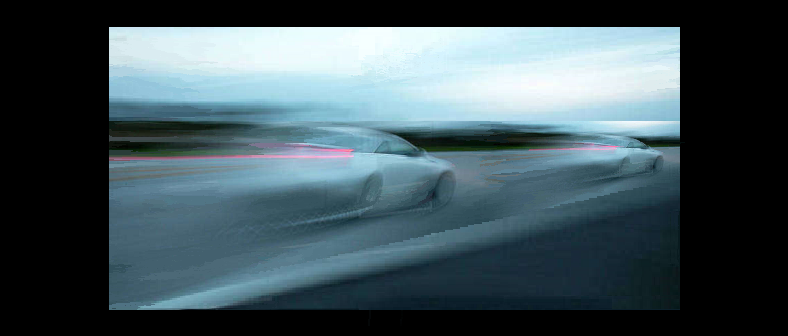
The Whole and Holy Circle by turiya ..... The Turiya Files
Date: 9/30/2024 8:38:34 PM ( 5 m ago)
Hits: 174
URL: https://www.curezone.org/forums/fm.asp?i=2466405
0 of 0 (0%) readers agree with this message. Hide votes What is this?
The Whole and Holy Circle
Master Lu-Tsu said:
A Zen story:
A BLIND MAN visited his friends.
It was dark when he left, and they gave him a lantern. 'Thank you, but I don't need it. Light or dark, it is all the same to me.'
'Yes, but carry it anyway so people won't bump into you.'
Off he went, and soon someone collided with him and shouted, 'Why don't you look where you're going?'
'Why, don't you see my lantern?'
'Sorry, brother,' said the other, 'your candle went out.'
The scriptures in the hands of people who don't know what meditation is are just like a lantern in the hands of a blind man - utterly useless. And the blind man cannot know whether the lantern is still lit or not. He will simply be carrying an unnecessary weight. In fact, not helpful at all - on the contrary, it can be a hindrance. If the blind man had been moving without the lantern he would have been more careful, more cautious. Because of the lantern in his hand, he must have been walking as if he had eyes, he must have put all caution aside.
That's what has happened to humanity at large. People have the Bible, the Koran, the Gita - these are lamps of immense beauty and light, but your eyes are blind. And the Gita is five thousand years old - the light went out long long ago. When Krishna died the light went out. So is the case with the Bible and the Koran and all the other holy scriptures of the world. When the Master dies, the light goes out.
But people go on carrying the scriptures, believing the scriptures, hoping that their life will remain full of light because they are carrying a message from a great Master. That message is nothing more than words; it is an unnecessary burden. If all the scriptures of the world disappear, man may become more cautious, may become more alert, may start looking for the source of light on his own. Because there will be nothing to lean on, he will have to learn to stand on his own feet.
Lung-t'an was once visited by Te-shan, who, seeking further and further elucidation, remained until it grew late. Lung-t'an finally said, 'The night deepens. Why don't you retire?'
Te-shan, taking his leave, raised the bamboo blind and went out. Seeing the intense darkness without, he returned and said, 'It is dark outside.'
Lung-t'an then lit a lantern and offered it to Te-shan. Just as Te-shan was about to take it, Lung-t'an abruptly blew it out. With this, Te-shan suddenly attained awakening, whereupon he bowed.
Lung-t'an said, 'What kind of truth did you see?'
Te-shan said, 'Never after today shall I doubt the utterances of all the old Masters under heaven.'
The next day Lung-t'an went before the disciples and said, 'Within this group there is a man whose canine teeth are like sword trees, whose mouth resembles a bloody plate, and who won't turn his head even when given a blow with a stick. One day he will establish my Way on the top of a solitary mountain peak.'
Te-shan then took out his sutra commentaries and, in front of the meditation hall, raised a torch and said, 'Endless deep analysis is like placing a single hair in the emptiness of space; worldly power is like throwing one drop of water into an immense gorge.'
So saying, he took his commentaries and burned them.
Now, if you don't have eyes even light is useless. A lantern in your hands is nothing, utterly nothing. But if you have eyes, even blowing out a candle can become an experience of enlightenment. The question is of eyes.
This man Lung-t'an was visited by Te-shan. Lung-t'an is the Master, Te-shan is his disciple. Seeing the darkness outside, the disciple said to the Master, 'It is too dark.' The Master lit a candle and gave it to the disciple; and as he was going to take it, he blew it out.
Suddenly, all became dark again, more dark than it was before. And this abrupt blowing-out of the candle must have been a shock - unexpected. For a moment the disciple must have fallen into the interval between two thoughts. For a moment thinking disappeared and there was contemplation. For a moment there was utter silence. In that silence he could see the point.
The next day he burned all his scriptures. Now they were no longer needed; now he knew the truth through his own experience.
A little bit of experience is more valuable than mountains of knowledge. Just two small eyes are more valuable than the sun and the moon and all the stars. The whole point is that religion is an experience. It is not speculation, it is not continuous analysis, it is insight.
Now the sutras.
These sutras are of immense value because they give you the technique in the simplest terms possible. And the method is really simple - unless you are determined to make it complex.
The mind always turns simple things into complexities. Beware of that, because the mind cannot exist with the simple; it is not needed. If things are really simple, what is the need of the mind? The mind is needed only when things are complex. Then you have to depend on the mind because then the mind will find the way out of the riddle. But if there is no riddle, the mind is utterly useless; you can discard it. So the investment of the mind is in complexity.
Remember it - these sutras are very simple. Truth is always simple, utterly simple.
Master Lu-tsu said:
What is contemplation? A moment of no-thought.
The English word 'contemplation' does not give the right idea of dhyana. In English there is no word which can translate the word dhyana.
There are three words available. One is 'concentration', which is very far-off, because concentration means effort, tension; a forced state, not a flowing spontaneous state. And 'dhyana' is a flowing spontaneity. There is no strain in it, so the word 'concentration' cannot be its translation.
Then the other word is 'contemplation'. But in English, contemplation gives the idea of thinking. When you say somebody is contemplating, you mean thinking about something.
Or the third word is 'meditation', but that too means thinking - to meditate upon something. Of these three words no word carries the meaning of dhyana. Dhyana means a state of no-thought, a state of silence, a state of being conscious, but without any content. The mirror is there but reflecting nothing, nothing whatsoever. Just like the mirror, the consciousness is there, but nothing is occupying it. That unoccupied awareness is dhyana.
Taoists use the word 'contemplation' to translate it. It is only because some word has to be used. So remember the meaning - it is not the meaning in the dictionaries. If you look into the dictionaries you will have a totally false idea of contemplation. In fact that is what THE SECRET OF THE GOLDEN FLOWER calls 'false contemplation'. False contemplation means thinking about something. It may be God - that's what Christians mean by contemplation - thinking about God, thinking about holy things, transcendental things. But things are things; whether they are holy or unholy makes no difference. And thinking is thinking; whether you think about sex or samadhi makes no difference.
A state of no-thought, an interval... And it is always happening, but you are not alert about it; otherwise there is no problem in it. One thought comes, then another comes, and between these two thoughts there is always a small gap. And that gap is the door to the divine, that gap is what is referred to as 'contemplation' in these sutras. If you look into that gap deeply, it starts becoming bigger and bigger.
 Mind is Like a Road Full of Traffic & The Gaps Between Thoughts
Mind is Like a Road Full of Traffic & The Gaps Between Thoughts
The mind is like a road full of traffic; one car passes by, then another car passes by, and you become so concerned with the cars that you don't see the gap that is always there between two cars. Otherwise they would collide. They don't collide; something is there between them that keeps them separate. Your thoughts don't collide, they don't run over each other, into each other. They don't even overlap in any way. Each thought has its own boundary, each thought is definable, but the procession of thoughts is so fast, so speedy, that you cannot see the gap unless you are really waiting for it, searching for it.
 The Interval Between Two Thoughts
The Interval Between Two Thoughts
Contemplation means changing the gestalt. Ordinarily we look at thoughts: one thought, another thought, another thought. When you change the gestalt you look at one interval, another interval, another interval. Your emphasis is no longer on the thoughts but on the interval.
For example, you are sitting here. I can look at you in two ways: either one person, another person, another person - my emphasis is on persons, I can count how many people there are - or I can forget about the persons and I can count the gaps between the persons, how many gaps are there.
This is the change of gestalt. If you count the gaps you will be surprised: persons become vague, you don't see them clearly because you are looking into the gaps, you are counting the gaps.
Standing by the side of the road some day, just count how many gaps pass by and you will be surprised: you don't see the colour of the cars, you don't see the make of the cars, you don't see the drivers and the passengers in the cars, but you do see gaps - one gap gone, another gap gone. You go on counting the gaps. Your gestalt has changed, it is different.
Contemplation is the change of gestalt; not jumping from one thought to another thought, but jumping from one gap to another gap. Slowly slowly you become very, very aware of the gaps.
And that is one of the greatest secrets of life, because it is through those gaps that you will fall into your own being, into your own centre.
<< Return to the standard message view
fetched in 0.03 sec, referred by http://www.curezone.org/forums/fmp.asp?i=2466405